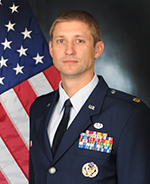In Memoriam: Colonel W. Hays Parks passed away on 11 May 2021
The study of the law needs to be integrated with the study of history: if not, it is inadequate.
-Sir Adams Roberts[1]
Author’s Note
On 11 May 2021, W. Hays Parks passed away. A series of experts who knew and understood Parks far better than I did provided concise dedications to his memory, including our former Deputy Judge Advocate General, Maj Gen (ret) Charles Dunlap.[2] The proliferation of memorials was fitting for the “giant” of the law of war and made a brief re-publication of this work appropriate.
I first encountered Parks as a First Lieutenant, attending a course at the Army’s Judge Advocate General’s Legal Center and School, where Parks delivered the keynote address. He posed a question to the audience. I raised my hand and rehearsed the correct rule. “Yes,” he said, “but why?” His ability to fluently walk through the primary source foundations and historical background was a clear demonstration that my own practice of the law had been inadequate. But it was not until I began seeking an LL.M. in International Law that I began to understand the extent of Parks’ remarkable influence. While writing Article 36 weapon reviews as an exchange officer with Australia’s Directorate of Operations and International Law, I saw the uncanny practical value of his extensive work. It almost became a cliché in this office for Australian, British or American lawyers to respond to “novel” questions of law by saying: “there’s a Hays Parks article on that.” I was intrigued by the influence an individual scholar could have on the law of war, and so at some point I made a vague goal to systematically read the entirety of Parks’ vast body of work. In accomplishing this goal, I found that Parks deserves his “hawkish” reputation, or as Dunlap would say more thoughtfully: “Hays has been America’s most formidable advocate of the U.S. view of the law of war.”[3] But while simultaneously marinating in modern views of international humanitarian law, I became fascinated by the dichotomy between Parks’ pragmatism and the progression, or rather, fluidity of ideas that permeate modern efforts to shape our understanding of the law. Parks’ work, supported by quantitatively and qualitatively superior experience, often challenge those modern ideas. I interviewed Parks twice for the 26 March 2020 JAG Reporter article (W. Hays Parks and the Law of War). He was kind, generous, intense, and as always, brilliant. He will be missed.
EXPAND YOUR KNOWLEDGE
External Links to Additional Resources
About the Author

Major R. Scott Adams, USAF
(B.S., Brigham Young University; J.D., Regent University School of Law; LL.M., The Judge Advocate General’s Legal Center and School) is currently assigned as the Staff Judge Advocate of Pacific Air Forces Operating Location E, U.S. Embassy, Canberra.
Endnotes
[1] Sir Adam Roberts,
Land Warfare: From Hague to Nuremburg, in The Laws of War: Constraints on Warfare in the Western World 117 (Sir Michael Howard, George J. Andreopoulos & Mark Shulman eds., 1994).